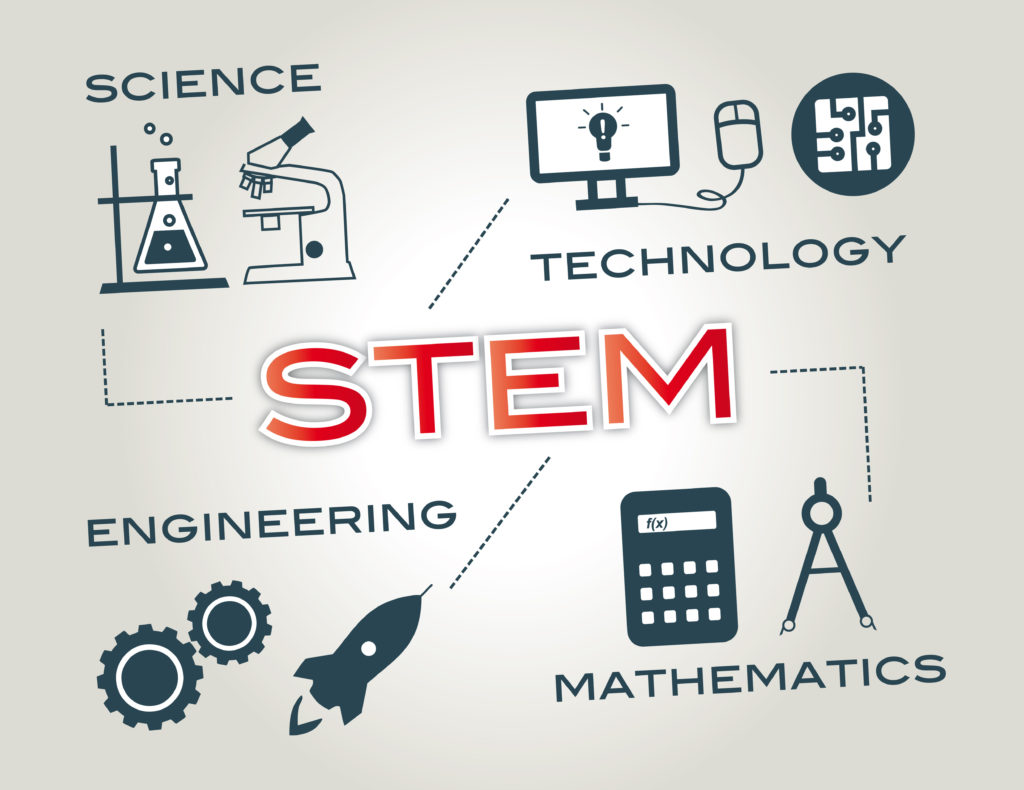When you hear the term ICT (Information and Communications Technology) what comes to mind? In an age of smartphones, lightning-fast communication and increased digitization, you won’t be faulted for thinking along these lines. Yet this topic encompasses far more across the broader landscape of STEM (Science, Technology, Engineering and Mathematics) and that’s exactly what we need to delve into. The global economic climate is, like the rapid advance of ICT, in a state of constant flux and evolution. Economies that fail to quickly adapt and find their own niche in this volatile system will not only be left behind but may jeopardize the long-term prospects for their citizenry as well.
Thus, it is our responsibility to ensure ICT and STEM serve as a core component of our educational system. Perhaps in realizing this, some regional governments have begun implementing initiatives and reforms to varying degrees. In 2016 and 2017, Barbados began making moves to see its schools utilize digital textbooks via tablets and laptops. According to a Jamaica Observer report from 2016, they as well have made moves to both ensure teachers are up to speed in utilizing ICT and that learning, as well as the dissemination of information, is increasingly done via electronic means.
Indeed, if you have children the results are immediately obvious. More and more school projects and homework assignments are to be done behind a PC. Group projects and work, in general, may now find themselves being planned and carried out via a WhatsApp group. To some parents, this sudden paradigm shift outside of their traditional comfort zone may seem frustrating but the pros outweigh the cons. The accessibility, convenience and sheer amount of information ICT bring to one’s disposal are simply second to none. Yet, this is only the tip of the iceberg.

STEM And Social Mobility
A report from the Trinidad Guardian in May highlighted a public-private partnership between Shell TT and Trinidad and Tobago’s Ministry of Education to improve the place both STEM and ICT in general holds in the education system. Shell claims their programme has benefited upwards of 8500 students and 60 teachers as they place emphasis on disciplines like Mathematics, IT, Aviation, Petroleum Geology and Geography Info-Systems.
At first, these specializations might seem odd but think big for a moment. Familiarity with a computer is one thing, but a populace generally versed in the sciences and related fields can be immensely valuable. It’s no coincidence after all, that IQ ratings have improved around the world, not just alongside a country’s overall development but also with improved educational systems as well.
In this vein, another organization is known as NXplorers also seeks to make STEM more ‘mainstream’ in developing world schools. This UK based firm has thus far engaged in a $25 million USD programme targeting upwards of 18 countries around the world with Trinidad and Tobago being one of them. Schools affected by their programme claim to have observed a marked performance improvement from their students in previously low performing subjects such as Mathematics and Physics.
Why do these foreign organizations have such a vested interest in developing world youths? In the case of companies like Shell, they simply want to shape and capitalize on the best minds available. With brain drain being a major problem in the Caribbean, one may be tempted to say, these organizations simply hope to attract our best and brightest overseas one day. Yet, consider how beneficial a prosperous and thriving developing world economy can be for an investor. A capable and reliable workforce also promises stability and a more diverse array of opportunities as well.

Thinking Outside Of The Box
Consequently, youth possessing a firm grasp of both ICT knowledge and a STEM specialization can be an asset to any nation in numerous ways. Beyond contributing to an increasingly skilled workforce in an ever industrialized world they can benefit outside of the realm of state and corporate involvement. Take, for example, an aspiring or existing entrepreneur. Not only can STEM specializations allow one to engage in lucrative private endeavours but they could also witness considerable savings via the utilization of technology. These can take the form of easier accessibility to goods via E-business and be able to perform numerous tasks digitally or with greater ease, thus reducing the need for more hired labour.
Indeed, this is an era where business persons can maintain healthy and well-established channels of trade purely via electronic means. This can undoubtedly be of substantial benefit to any commercial enterprise be it involved in import or export. In times where earning foreign exchange seems to be a constant worry for most small states, technology can provide answers and solutions without the need for millions of dollars to be dumped into state-run initiatives or startups.
Looking To The Future
However, it’s not all bright and promising when we talk about ICT. As economist Indira Sagewan Ali notes, we are witnessing what is known as ‘4IR’ or the ‘4th Revolution’. Over the next couple of years, we will likely witness even more staggering changes, many of which we couldn’t even imagine prior. This will no doubt bring with it considerable improvements to living standards and convenience, yet there is something we must consider. These developments will also usher in an era of increased mechanization, digitization and automation. Did you know that most search engines and online software you use now incorporate some form of AI in its functions for example?

As AI development continues, many roles and jobs may likely become redundant. This will impact everyone across different classes. Consider that companies are currently working on creating precise and quick robotic ‘surgeons’. Pretty soon a room of surgeons will likely be replaced by a single professional overseeing a procedure. Thus, we’ll also witness growing unemployment and economic shocks that can and will obviously affect smaller nations such as developing Caribbean states the most.
Therefore, an educational emphasis on STEM and ICT can serve to prepare the future workforce for these realities by way of making them more adaptable and multi-skilled. After all, these developments are not just something looming far off in the distance anymore. They’re just around the corner. The Caribbean region must immediately take the initiative or suffer dire consequences.



















